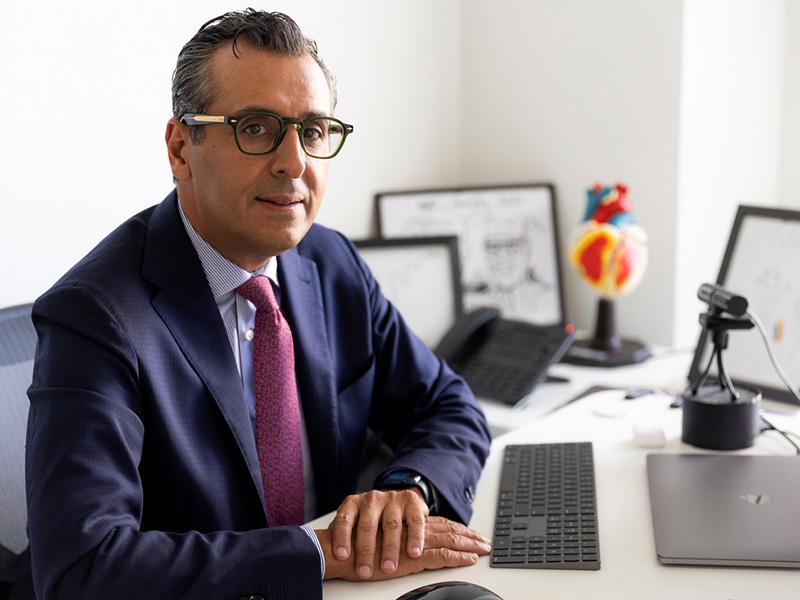Grateful patient donates millions to Tulane cardiac center that saved his life
The Tulane Research Innovation for Arrhythmia Discovery (TRIAD) Center has a proactive approach to managing heart disorders. An anonymous patient credits that approach — and Nassir Marrouche, MD, director of the TRIAD Center and professor of medicine — with saving his life. In gratitude, the patient has become one of the center’s biggest philanthropic supporters, donating almost $4 million since 2019.
“Dr. Marrouche is a brilliant electrophysiologist, and I’m alive and well today because of his innovative techniques and early intervention,” the donor said. “I wanted to ensure that he could do the same for other patients facing similar health conditions. I would encourage anyone who can support the TRIAD Center’s work to do so. After all, the next life he saves could be your own.”
In 2019, the donor gave $1.5 million to help establish the Cardiac Arrhythmias Fund, which benefits the TRIAD Center. After donating an additional $333,333, he stepped up this year to pledge a new gift of $2.1 million.
“Academic medical centers like Tulane are the best place for medical treatments because the research we conduct advances patient care more rapidly and enables us to save lives,” said L. Lee Hamm, MD, senior vice president and dean of the School of Medicine. “We’re thankful for our anonymous donor’s generous support of the TRIAD Center, as his gift will fund the important work that may be responsible for saving future cardiac arrhythmia patients.”
The TRIAD Center’s mission extends beyond simply treating arrhythmias when they arise. Marrouche and his team seek to diagnose disorders earlier, help prevent them and slow the effects of aging on the heart.
“We are the forefront of the digital healthcare revolution and are leveraging real-time remote monitoring and big data throughout our research endeavors,” Marrouche said. “This includes exploring cutting-edge artificial intelligence algorithms to early detect and prevent aging heart tissue.”
The TRIAD Center developed an experimental aging model that allows testing of molecular and mRNA approaches to stop aging. The tools will help researchers learn groundbreaking new information about the aging heart and discover innovative ways to prevent heart disease.

